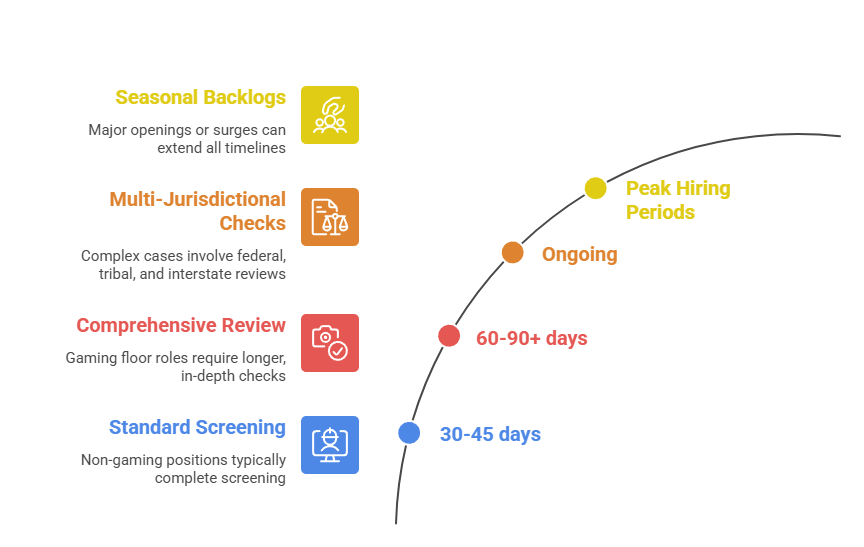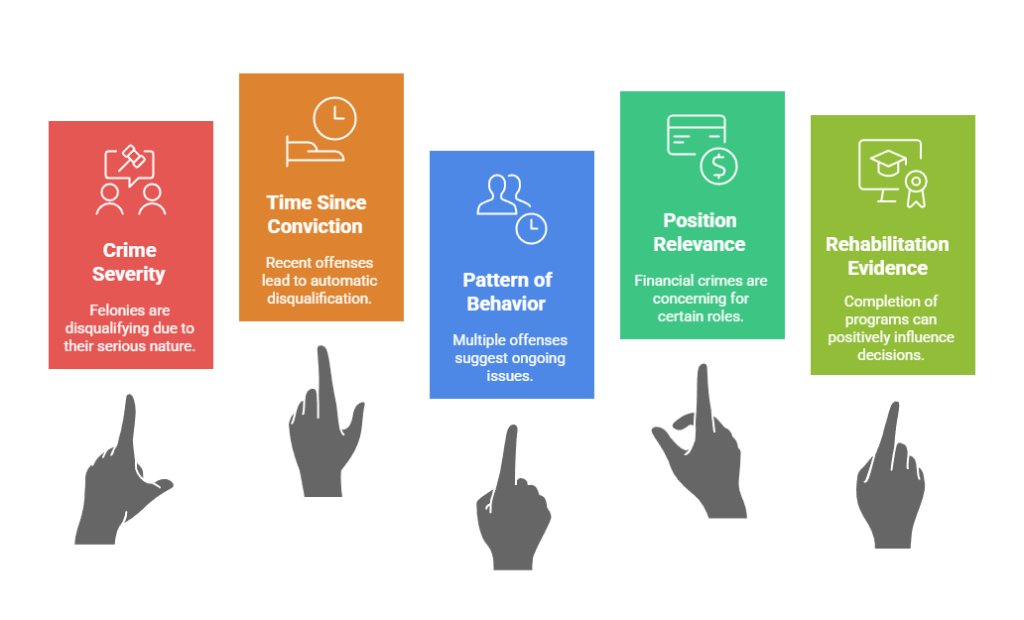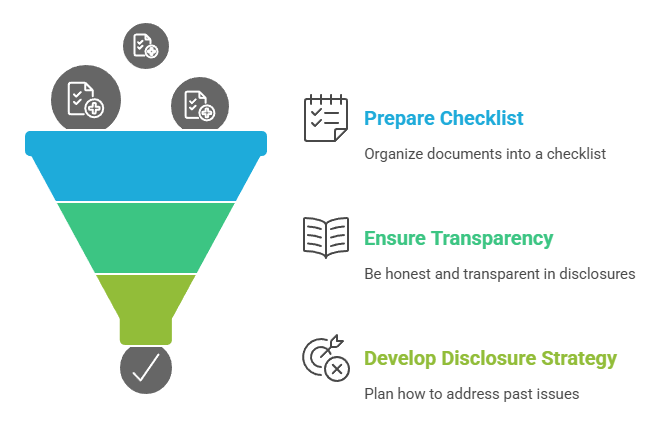Texas casino background checks operate under a complex tri-jurisdictional system involving state, tribal, and federal oversight, with the Texas Racing Commission setting baseline standards while individual tribal nations maintain additional requirements. The process typically takes 30-90 days and includes criminal history, employment verification, and financial screening, with specific disqualifications varying by position level and gaming facility type.
Key Takeaways
- Texas casinos must comply with both Texas Racing Commission standards and individual tribal gaming authority requirements, creating a dual-layer screening process.
- Background checks typically include criminal history searches, employment verification, financial screening, and reference checks, with more intensive reviews for gaming positions.
- Processing times range from 30-90 days depending on position level, with gaming floor roles requiring the most comprehensive screening.
- Certain felonies automatically disqualify candidates, while misdemeanors and financial issues are evaluated case-by-case based on recency and relevance.
- Credit history checks are standard for cash-handling and management positions, though poor credit doesn't automatically disqualify candidates.
- The expanding Texas gaming market is creating new opportunities, with updated regulations expected throughout 2025 as more facilities come online.
Understanding Texas Casino Background Check Requirements
The Texas casino industry operates under a unique regulatory framework that combines state oversight through the Texas Racing Commission with individual tribal gaming authorities. This creates a comprehensive screening process that goes beyond typical employment background checks. Texas gaming facilities must ensure all employees meet both state and tribal standards, which often results in more thorough vetting procedures than other industries.
The regulatory landscape continues evolving as Texas expands its gaming operations. New commercial gaming ventures and tribal casino expansions have prompted updated screening protocols that reflect both federal Indian Gaming Regulatory Act (IGRA) requirements and state-specific standards. Understanding these layered requirements is essential for both employers and job seekers navigating the Texas gaming employment market.
Current regulations distinguish between different employee categories, with gaming floor positions requiring the most intensive background screening. Non-gaming positions like food service or maintenance typically undergo standard employment checks, while gaming positions involving direct customer interaction or cash handling face comprehensive multi-jurisdictional reviews that can take several months to complete. This tiered approach allows facilities to allocate resources efficiently while maintaining compliance with all applicable regulations.
Texas Racing Commission Standards
The Texas Racing Commission establishes baseline background check requirements for all gaming facilities operating within state jurisdiction. These standards include mandatory criminal history searches spanning seven years for most positions and lifetime searches for key gaming roles. The commission requires verification of employment history, education credentials, and personal references as part of their comprehensive screening protocol.
Financial background screening represents a critical component of Texas Racing Commission requirements, particularly for positions involving cash handling or financial oversight. Candidates must disclose bankruptcy filings, tax liens, and significant debt obligations, though these factors don't automatically result in disqualification. Instead, the commission evaluates each case based on circumstances, timeline, and relevance to job responsibilities.
Tribal Gaming Authority Requirements
Individual tribal gaming authorities maintain their own background check standards that often exceed state requirements. These additional screenings may include extended criminal history searches, more detailed financial reviews, and specific cultural or community-based evaluations. Tribal authorities also conduct ongoing background monitoring for certain positions, requiring periodic re-screening throughout employment.
Types of Background Checks Conducted
Texas casino background checks encompass multiple screening categories designed to evaluate candidate suitability for gaming industry employment. The comprehensive nature of these checks reflects the industry's regulatory requirements and the need to maintain gaming license compliance. Each screening type serves a specific purpose in assessing candidate qualifications and potential risks.
| Background Check Type | Gaming Positions | Non-Gaming Positions |
| Criminal History | 7-year/Lifetime search | 7-year search |
| Employment Verification | 10 years comprehensive | 7 years standard |
| Financial Screening | Complete credit/financial review | Basic credit check |
| Reference Checks | Personal and professional | Professional only |
| Drug Testing | Pre-employment and random | Pre-employment only |
The multi-layered approach ensures thorough candidate evaluation while maintaining compliance with various regulatory authorities. Gaming positions typically undergo the most extensive screening, reflecting the higher security and regulatory requirements associated with casino floor operations.
Criminal History Screening
Criminal background checks form the foundation of Texas casino employment screening. These searches examine federal, state, and county records to identify any disqualifying offenses or patterns of criminal behavior. The scope and timeframe of criminal history searches vary based on position type, with gaming floor roles requiring lifetime criminal record reviews.
Employment and Education Verification
Employment verification extends beyond basic position confirmation to include performance evaluations, reasons for departure, and eligibility for rehire. Texas casinos typically verify 7-10 years of employment history, with particular attention to previous gaming industry experience and any disciplinary actions or terminations.
Timeline and Processing Expectations
Texas casino background check processing times vary significantly based on position level, candidate history, and current application volume. Standard non-gaming positions typically complete screening within 30-45 days, while gaming floor positions requiring comprehensive review can take 60-90 days or longer. Understanding these timelines helps both employers and candidates plan accordingly for the hiring process.

The complexity of multi-jurisdictional requirements often extends processing times beyond typical employment screening. Federal database searches, tribal authority reviews, and interstate record verification all contribute to extended timelines. Candidates with extensive travel history, multiple previous addresses, or complex employment backgrounds should expect additional processing time.
Several factors can accelerate or delay the background check process. Complete application submission reduces follow-up delays and speeds overall processing. Responsive communication with verification requests prevents unnecessary delays. Clear record history allows faster processing than complex backgrounds requiring additional investigation.
Peak hiring periods around major casino openings or seasonal employment surges can create backlogs that extend normal processing times. Facilities often prioritize gaming positions during these periods, which may delay non-gaming role approvals. Planning ahead and submitting applications early in the hiring process helps minimize timeline impacts.
Expedited Processing Options
Certain circumstances may qualify candidates for expedited background check processing. Previous gaming industry employees with current or recent clearances from other jurisdictions often receive priority review. Additionally, positions critical to casino operations or those filling urgent staffing needs may qualify for accelerated processing through dedicated review channels.
However, expedited processing doesn't compromise screening thoroughness. All required checks must still be completed regardless of timeline acceleration. Candidates should understand that expedited processing applies to review prioritization rather than requirement reduction.
Common Disqualifications and Red Flags
Texas casino background checks identify specific disqualifications that can prevent employment in gaming facilities. Understanding these red flags helps candidates assess their eligibility before applying and allows employers to set appropriate expectations during the hiring process. Disqualifications fall into several categories, each with different severity levels and potential for appeal or reconsideration.
Automatic disqualifications typically include felony convictions for crimes involving theft, fraud, embezzlement, or money laundering within the past seven years. Violence-related offenses, drug trafficking convictions, and organized crime associations also result in immediate disqualification from most gaming positions. These restrictions reflect the industry's need to maintain public trust and regulatory compliance.
The evaluation process considers several key factors when reviewing potential disqualifications:

- Crime Severity: Felonies carry significantly more weight than misdemeanor offenses in the evaluation process.
- Time Since Conviction: Recent offenses within five years typically result in automatic disqualification for most positions.
- Pattern of Behavior: Multiple criminal offenses suggest ongoing issues and significantly reduce approval chances.
- Position Relevance: Financial crimes are particularly concerning for cash-handling positions and management roles.
- Rehabilitation Evidence: Completion of court-ordered programs and stable employment history can positively influence decisions.
Financial red flags require careful evaluation rather than automatic disqualification. Poor credit history, bankruptcy filings, or significant debt don't necessarily prevent casino employment, but they may limit access to certain positions involving financial responsibility.
Felony Convictions and Gaming Employment
Felony convictions present the most significant barrier to Texas casino employment, particularly for gaming floor positions. However, not all felonies result in permanent disqualification. The nature of the offense, time elapsed since conviction, and evidence of rehabilitation all factor into eligibility determinations.
Candidates with felony histories should be prepared to provide detailed explanations, court documentation, and evidence of positive life changes since their conviction. Some facilities may consider applicants with older non-violent felonies for non-gaming positions, though this varies by employer and specific circumstances. The key is demonstrating rehabilitation and stable behavior patterns following the conviction.
Financial Issues and Credit History
Credit problems and financial difficulties receive individual evaluation rather than automatic rejection. Casinos understand that financial stress can make employees vulnerable to theft or fraud, but they also recognize that past financial problems don't necessarily indicate future risk. The evaluation focuses on current financial stability and the nature of past financial issues.
Position-Specific Requirements
Different casino positions carry varying background check requirements based on job responsibilities and regulatory oversight needs. Gaming floor positions face the most stringent screening due to direct involvement with gaming operations and cash handling. Non-gaming positions typically undergo standard employment screening, though they still must meet basic gaming facility requirements.
The position-specific approach allows casinos to allocate screening resources appropriately while maintaining comprehensive oversight where regulation requires. This tiered system also helps expedite hiring for lower-risk positions while ensuring thorough evaluation for sensitive roles. Understanding these distinctions helps candidates target appropriate positions based on their background history.
Gaming floor positions including dealers, slot attendants, and cage cashiers undergo the most comprehensive background screening. These roles require gaming licenses or permits that involve detailed criminal history reviews, financial background checks, and ongoing monitoring. The intensive screening reflects both regulatory requirements and the direct access these positions have to gaming revenue and operations.
| Position Category | Criminal Check | Financial Review | License Required |
| Gaming Floor | Lifetime search | Comprehensive | Yes |
| Security/Surveillance | 10-year search | Extensive | Usually |
| Management | 7-10 year search | Comprehensive | Often |
| Food/Beverage | 7-year search | Basic | No |
| Maintenance/Housekeeping | 7-year search | Basic | No |
This structured approach ensures appropriate screening intensity while maintaining operational efficiency. Each position category receives screening commensurate with its risk level and regulatory requirements.
Gaming Floor Positions
Gaming floor employees represent the highest-risk category for casino operations, requiring comprehensive background screening and ongoing monitoring. These positions typically require individual gaming licenses or work permits issued by tribal gaming authorities or state regulators. The licensing process includes detailed personal history disclosure, fingerprinting, and in-person interviews.
Ongoing compliance monitoring means gaming floor employees may face periodic re-screening throughout their employment. This can include annual background updates, financial disclosure reviews, and notification requirements for any legal issues or significant life changes that could affect their gaming license status. The continuous monitoring ensures sustained compliance with all regulatory requirements.
Security and Surveillance Roles
Casino security and surveillance positions require specialized background screening that often includes law enforcement or military service verification. These roles demand the highest level of trust and integrity, as security staff have access to sensitive areas and confidential information about gaming operations and patrons. Previous experience in protective services can expedite the approval process.
Preparing for Your Casino Background Check
Successful navigation of the Texas casino background check process requires thorough preparation and complete transparency. Candidates should gather all necessary documentation before beginning the application process and be prepared to provide detailed explanations for any issues that may arise during screening. Proper preparation can significantly reduce processing delays and improve approval chances.

Essential documentation for casino background checks includes government-issued identification, Social Security card, employment history with dates and supervisor contacts, education transcripts or certificates, and any court documents related to criminal history. Having these materials organized and readily available speeds the application process and demonstrates professionalism to potential employers. Additionally, candidates should prepare a comprehensive address history covering at least ten years.
Honesty throughout the application process is crucial for successful completion. Attempts to hide or minimize background issues often result in disqualification, while transparency and detailed explanations can lead to approval despite past problems. Background investigators are trained to identify discrepancies, and comprehensive databases make concealment nearly impossible.
Documentation Checklist
Creating a comprehensive documentation checklist ensures candidates have all necessary materials before beginning the background check process. This preparation demonstrates professionalism and can significantly reduce processing delays caused by missing information requests. The complete package should include personal identification, employment records, educational credentials, and legal documents.
Primary documents include valid driver's license or state ID, Social Security card, birth certificate, and current passport if applicable. Employment documentation should cover the past 10 years with employer names, addresses, dates of employment, supervisor contact information, and reasons for leaving each position. Educational materials include diplomas, transcripts, professional certifications, and training certificates relevant to casino employment.
Disclosure Strategy for Past Issues
Candidates with past legal or financial issues should develop a clear disclosure strategy that emphasizes rehabilitation, growth, and current stability. The key is providing complete, honest information while contextualizing past problems within a narrative of positive change and personal development. This approach demonstrates maturity and accountability.
Effective disclosure includes acknowledging responsibility for past mistakes, explaining circumstances that led to problems without making excuses, detailing concrete steps taken to address issues, and demonstrating current stability through employment, education, or community involvement. Supporting documentation like program completion certificates, character references, and employment records strengthens the disclosure narrative and shows genuine rehabilitation efforts.
Working with Background Check Companies
Texas casinos typically partner with specialized background check companies that understand gaming industry requirements and regulatory compliance needs. These companies maintain databases and processes specifically designed for gaming employment screening, including direct connections to tribal gaming authorities and state regulatory agencies. Understanding how these companies operate can help candidates navigate the process more effectively.
Background check companies used by Texas casinos must maintain Gaming Industry Security certification and comply with both state and federal screening regulations. They typically offer comprehensive packages that include criminal history searches, employment verification, education confirmation, and specialized gaming industry checks. The companies also provide ongoing monitoring services for employees in sensitive positions.
The relationship between casinos and background check providers is built on accuracy, compliance, and efficiency. Casinos depend on these companies to provide thorough, legally compliant screening that meets all regulatory requirements while maintaining reasonable processing timelines. This partnership approach ensures consistent screening standards across the industry while leveraging specialized expertise.
Communication with background check companies should be prompt and professional. Candidates may receive requests for additional information, clarification of employment dates, or explanation of address discrepancies. Quick, complete responses to these requests prevent processing delays and demonstrate cooperation throughout the screening process.
Industry-Specific Screening Providers
Gaming industry background check companies specialize in the unique requirements of casino employment screening. These providers maintain direct access to gaming regulatory databases and understand the specific documentation requirements for different position types. Their expertise in tribal gaming regulations and multi-jurisdictional compliance makes them valuable partners for Texas casinos.
Specialized providers also offer enhanced services like ongoing monitoring, compliance tracking, and regulatory reporting that standard background check companies cannot provide. This comprehensive approach ensures casinos maintain regulatory compliance while efficiently managing their screening processes. The investment in specialized providers ultimately reduces liability and improves hiring outcomes.
Legal Rights and Protections
Candidates undergoing Texas casino background checks maintain specific legal rights and protections under federal and state law. The Fair Credit Reporting Act (FCRA) provides the primary framework for employment background screening, establishing requirements for disclosure, consent, and dispute resolution. Understanding these rights helps candidates navigate the process confidently and address any issues that arise.
FCRA requirements mandate that employers provide written disclosure before conducting background checks and obtain written consent from candidates. If adverse action results from background check findings, employers must provide specific notifications including copies of reports and information about dispute rights. These protections ensure transparency and provide recourse for incorrect or incomplete information.
Additionally, candidates have the right to dispute inaccurate information found during background screening. The dispute process allows candidates to challenge incorrect criminal records, employment information, or other data that may negatively impact their employment prospects. Background check companies must investigate disputes and correct verified inaccuracies within reasonable timeframes.
State and tribal gaming regulations provide additional protections specific to gaming industry employment. These may include appeal processes for license denials, requirements for detailed explanations of adverse decisions, and provisions for reconsideration based on new information or changed circumstances. Understanding both federal and gaming-specific rights ensures candidates can effectively advocate for themselves throughout the screening process.
Dispute Resolution Process
The background check dispute process allows candidates to challenge inaccurate or incomplete information that appears in their screening results. This process typically begins with written notification to the background check company identifying specific inaccuracies and providing supporting documentation. Companies must investigate disputes within 30 days and provide written responses detailing their findings.
Supporting documentation for disputes may include court records showing case dismissals, corrected employment dates from former employers, or educational transcripts verifying degree completion. The more comprehensive and official the supporting documentation, the more likely the dispute will result in favorable corrections to the background report.
Appeal Options for Denials
Gaming license or employment denials based on background check results may be subject to appeal processes depending on the issuing authority. Tribal gaming commissions often maintain formal appeal procedures that allow candidates to present additional information, character references, or evidence of rehabilitation. These appeals provide second chances for candidates who can demonstrate their suitability despite past issues.
The appeal process typically requires detailed written submissions explaining why the initial decision should be reconsidered. Strong appeals include new information not available during the initial review, character references from employers or community members, evidence of rehabilitation or personal growth, and demonstration of current stability and reliability.
Cost Considerations and Funding
Texas casino background checks involve various costs that candidates should understand before beginning the process. While employers typically pay for standard background screening, certain specialized checks or expedited processing may require candidate payment. Understanding these potential costs helps candidates budget appropriately and avoid delays due to payment issues.
Gaming license application fees represent the most common candidate expense, typically ranging from $100-500 depending on license type and issuing authority. These fees cover administrative processing, database searches, and regulatory review costs. Some tribal gaming authorities offer payment plans or fee reductions for candidates demonstrating financial hardship.
Additional costs may include fingerprinting fees, document certification charges, and travel expenses for in-person interviews or licensing appointments. Candidates should contact specific gaming authorities or employers to understand exact fee structures and payment options. Many facilities provide detailed cost breakdowns during the application process to help candidates prepare financially.
The investment in comprehensive background screening serves long-term career interests by establishing credibility within the gaming industry. Successfully completed background checks and gaming licenses often transfer between facilities, reducing future screening costs and expediting employment opportunities. This transferability makes the initial investment worthwhile for candidates planning gaming industry careers.
Conclusion
Texas casino background checks represent a comprehensive screening process that reflects the unique regulatory environment and security needs of the gaming industry. Success requires understanding the multi-jurisdictional requirements, preparing complete documentation, and maintaining transparency throughout the process. While the screening is thorough and time-consuming, proper preparation and honest communication significantly improve approval chances. The expanding Texas gaming market continues creating new opportunities for qualified candidates who can successfully navigate these background check requirements.
Frequently Asked Questions
How long does a Texas casino background check take?
Texas casino background checks typically take 30-90 days depending on position type and background complexity. Non-gaming positions usually process within 30-45 days, while gaming floor positions requiring comprehensive screening can take 60-90 days. Factors like previous addresses, employment history complexity, and peak hiring periods can extend these timelines.
Can someone with a felony work at a Texas casino?
Felony convictions don't automatically disqualify candidates from all Texas casino positions, though they significantly limit opportunities. Non-violent felonies older than seven years may qualify for non-gaming positions, while recent felonies or those involving theft, fraud, or violence typically result in disqualification. Each case receives individual evaluation based on circumstances and rehabilitation evidence.
Do Texas casinos check credit history for all positions?
Texas casinos conduct credit checks primarily for positions involving cash handling, financial oversight, or management responsibilities. Non-gaming positions like food service or maintenance may not require credit screening. Poor credit doesn't automatically disqualify candidates, but financial issues are evaluated for potential vulnerability to theft or fraud.
What criminal history disqualifies someone from casino employment in Texas?
Automatic disqualifications typically include recent felonies involving theft, fraud, embezzlement, money laundering, violence, drug trafficking, or organized crime associations. The timeframe and severity of evaluation depends on position type, with gaming floor roles facing the strictest standards. Misdemeanors and older offenses receive case-by-case consideration.
Are Texas casino background checks different from other states?
Texas casino background checks involve unique tri-jurisdictional oversight combining state, tribal, and federal requirements. This creates more complex screening than many other states and often results in longer processing times. The specific requirements vary by facility type and tribal gaming authority, making Texas screening particularly comprehensive.
Can you work at a Texas casino while your background check is pending?
Most Texas casinos don't allow employment in gaming positions until background checks are complete and approved. Some facilities may offer conditional employment in non-gaming roles while screening is pending, but this varies by employer policy. Security and gaming floor positions typically require full clearance before beginning work.
What happens if you lie on a Texas casino background check application?
Dishonesty or omissions on background check applications typically result in immediate disqualification and potential permanent banning from casino employment. Background investigators use comprehensive databases that make concealment detection likely. Transparency about past issues, even negative ones, generally produces better outcomes than attempted concealment.
Do Texas casinos conduct ongoing background monitoring?
Yes, many Texas casinos conduct periodic re-screening for gaming floor employees and management positions. This ongoing monitoring may include annual background updates, financial reviews, and requirements to report legal issues or significant life changes. The frequency and scope depend on position sensitivity and regulatory requirements.
Additional Resources
- Texas Racing Commission Gaming Regulations and Licensing Requirements
https://www.txrc.texas.gov/gaming-regulations - Indian Gaming Regulatory Act (IGRA) Federal Compliance Guidelines
https://www.nigc.gov/general-counsel/indian-gaming-regulatory-act - National Indian Gaming Commission Background Investigation Standards
https://www.nigc.gov/compliance-enforcement/background-investigations - Fair Credit Reporting Act (FCRA) Guidelines for Employment Screening
https://www.ftc.gov/enforcement/rules/rulemaking-regulatory-reform-proceedings/fair-credit-reporting-act - Texas Gaming Industry Employment Resources and Job Search Tips
https://www.twc.texas.gov/job-seekers/gaming-industry-careers - American Gaming Association Best Practices for Casino Employment
https://www.americangaming.org/research/responsible-gaming/employment-practices
Still have questions?
Get in touch with our team today for a personalized demo and discover how our tailored volume pricing and packages can drive results for your business!
How useful was this page?*
Note: your comments are anonymous. We use them to improve the website. Do not include any personal details.
Visit our FCRA Compliance Tool or leave a message here if you need a response.
From the blog Explore the GCheck Content Hub

Healthcare Background Screening Costs: 2026 Budget Planning Guide for Medical Facilities
30 Dec, 2025 • 23 min read
FACIS Background Check: 2026 Healthcare Compliance Guide
18 Dec, 2025 • 20 min read
Food Delivery Driver Background Check: Complete Compliance Guide for Restaurant Operators
17 Dec, 2025 • 17 min readThe information provided in this article is for general informational and educational purposes only and should not be construed as legal advice or a substitute for consultation with qualified legal counsel. While we strive to ensure accuracy, employment screening laws and regulations—including but not limited to the Fair Credit Reporting Act (FCRA), Equal Employment Opportunity Commission (EEOC) guidelines, state and local ban-the-box laws, industry-specific requirements, and other applicable federal, state, and local statutes—are subject to frequent changes, varying interpretations, and jurisdiction-specific applications that may affect their implementation in your organization. Employers and screening decision-makers are solely responsible for ensuring their background check policies, procedures, and practices comply with all applicable laws and regulations relevant to their specific industry, location, and circumstances. We strongly recommend consulting with qualified employment law attorneys and compliance professionals before making hiring, tenant screening, or other decisions based on background check information.

